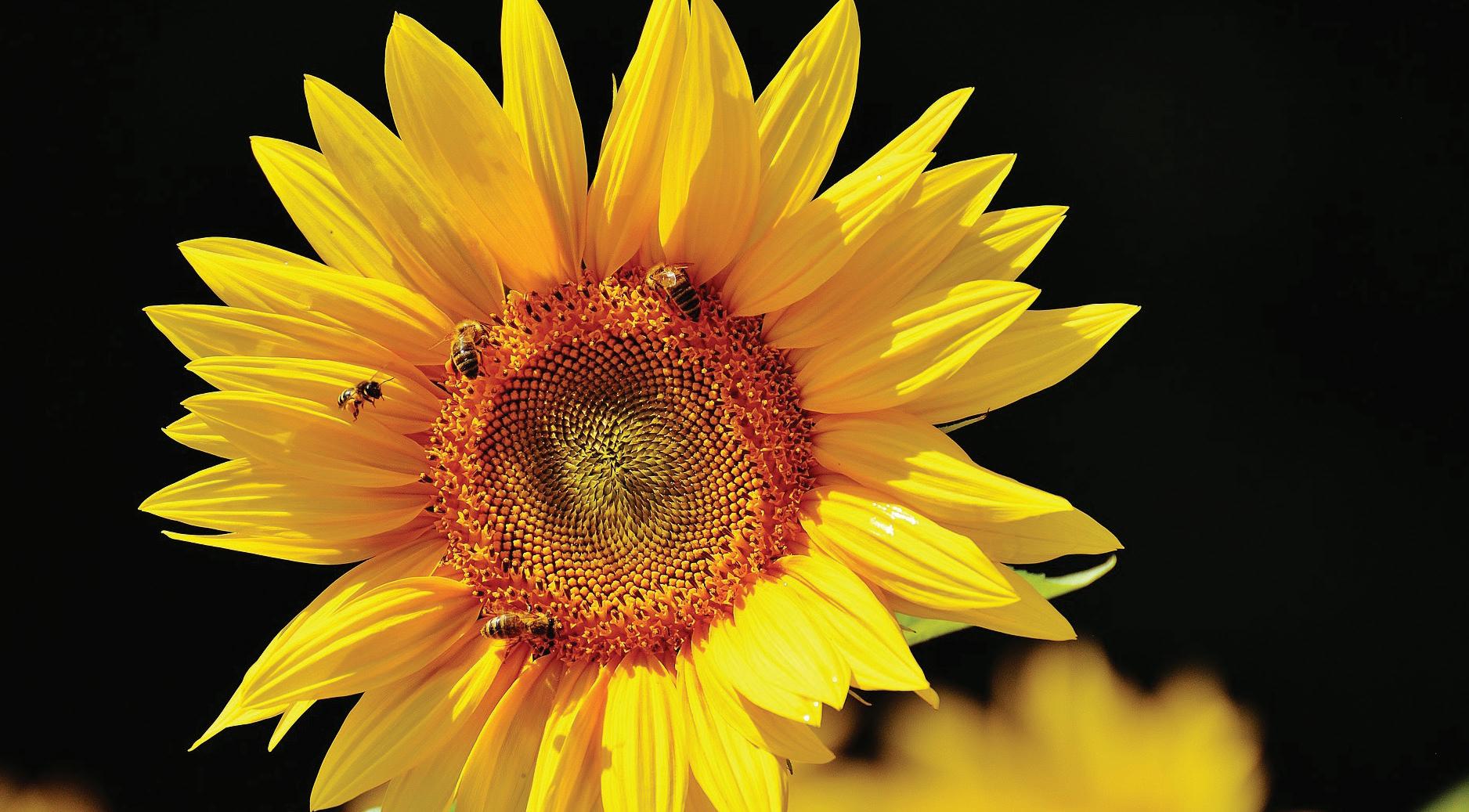
3 minute read
farming Various role-players collaborate to ensure pollinator safety
Various role-players collaborate to ensure pollinator safety
The crop protection industry, together with a number of grower and beekeeping associations, have committed to ensuring that their activities are conducted in such a way that pollinator safety is a key priority.
TO THIS END, a pollinator charter was created in which all parties involved agreed that their members shall adhere to the guidelines provided in the charter. These parties include CropLife SA, Agri SA, Grain SA, SABIO, Hortgro, SAMAC, SANSOR, Subtrop, and Citrus Research International. “Bees form such a critical component of biodiversity and food production that we owe them all the protection we can afford. By following label directives strictly, adhering to bee safeguarding protocols and establishing information networks between beekeepers and crop farmers, we can prevent pesticide impacts on bees. It needs a total commitment from the crop production, plant protection and beekeeping sectors to achieve this objective” says Dr Gerhard Verdoorn, operations and stewardship manager of CropLife SA, the association representing the crop protection industry. The charter states that growers and the crop protection industry shall only recommend or apply crop protection products that are registered according to Act 36 of 1947, as prescribed by the label, and within an integrated pest management programme. In addition, they will ensure that measures are taken to minimise dust resulting from treated seed, and to avoid spraying when bees are foraging, unless absolutely necessary and only with products which are explicitly designed for bee-safe application during flowering. Commenting on behalf of the macadamia industry, Schalk Schoeman, research extension manager at SAMAC says: “We acknowledge the importance of bees for the macadamia industry. Macadamia pollen is sticky and is not easily dispersed by wind. Clearly invertebrates and more particularly honeybees play an intrinsic role in dispersing pollen and should be regarded as very important allies in sustainable macadamia production. To further this, SAMAC is currently funding a number of projects focussing on honeybees and growers are actively discouraged from using products that may harm bees during or just after flowering. Environmental sustainability is a key aspect of macadamia farming in South Africa, therefore SAMAC proudly endorses the new pollinator charter.” In addition to the macadamia industry, pollinators play a critical role in deciduous fruit, citrus, vineyards, canola and even sunflower production. “Pollination and the wellbeing of bees during their brief, yet vital sojourn in orchards, is critical to the pome and stone fruit industry. The deciduous fruit industry is fully committed to the pollination charter and recognises the role of the grower in ensuring pollinator safety”, says Hugh Campbell, general manager of Hortgro Science. Another key point is effective and timeous communication between growers and beekeepers. This is why the charter includes an undertaking from pollinators and bee farmers to formalise the relationship with the farmer or landowner, to communicate with growers and other pollinators about their intended activities, and to ensure good hive management practices. This model of collaboration among multiple stakeholders is an important step in the right direction to highlight the responsibilities of all parties to ensure bee health.
Pollination and the wellbeing of bees during their brief, yet vital sojourn in orchards, is critical to the pome and stone fruit industry.

Honeybees play an intrinsic role in dispersing pollen and should be regarded as very important allies in sustainable macadamia production.











